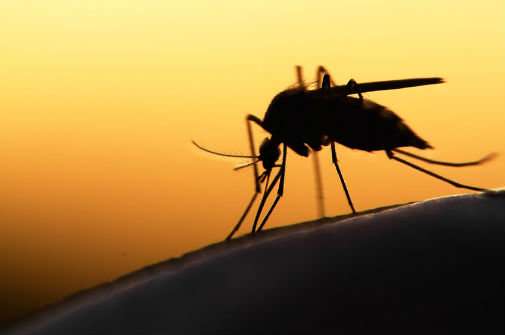Could rising carbon dioxide levels trigger return of eradicated mosquito-related disease?

Research mapping the evolution of mosquitos against rising CO2 levels over millions of years, has suggested that more mosquito-related diseases could have consequences for future human health, as the climate continues to change.
The research showed that whilst there is a link between rising CO2 levels and mosquito evolution, it is less directly linked than previously thought, with other factors, such as the diversity of mammal hosts, contributing to an increase in the species richness of mosquitos.
Many mosquito-borne diseases have been eradicated in areas of Europe, whilst many parts of Asia and Africa still harbour diseases such as malaria, Yellow fever, Zika virus, and Dengue fever.
Blood-meal
Female mosquitos can identify sources of blood-meal from the CO2 levels that mammals release from their bodies. There is now concern that as CO2 levels rise as a result of human activity, so too will the diversity of disease-carrying mosquitos.
There is limited research, however, on how the mosquito is evolving in a changing climate and how and why the species is diversifying.
The new study, from researchers at the University of York, the University of Bath, and China Agricultural University, shows for the first time the impact that climate change is having on the rate in which mosquitos diversify, and what this might mean for human health in the future.
Evolutionary tree
Dr. Katie Davis, from the University of York's Department of Biology, said: "We constructed an evolutionary tree of mosquito species, and then mapped it against past climate change. We then used a mathematical model to look at direct cause and effect, which revealed that rising CO2 levels overtime has increased species of mosquito, but less directly than we previously thought.
"We found that the increase in the diversity of mammals led directly to a rise in the number of mosquito species, and also that there is a relationship between CO2 levels and the number of mammal species, but there are missing pieces of this puzzle, so we can still only speculate at this stage."
More research is needed to understand what climate change means for the future of the mosquito and the work will contribute to further discussions about the value of the mosquito to the ecosystem and how to manage the diseases they carry.
Vision and smell
Professor Matthew Wills, from the University of Bath, said: "It's only the female mosquitos that take a blood-meal, and they use the CO2 that mammals and other vertebrates exhale as a very general cue to locate their hosts. One line of thinking is that as ambient levels of atmospheric CO2 rose, mosquitos may have found it increasingly difficult to distinguish between the CO2 from their hosts and those background levels.
"Vision, body heat and other smells might then have become more important in locating their blood-meals, but many of these cues tend to be more specific to particular hosts. As a general rule, we know that a strong host specificity can be an important driver of speciation in parasites, and the same may be true in mosquitos."
Rising levels
Chufei Tang, from China Agricultural University, said: "The rising atmospheric CO2 has been proven to influence various kinds of organisms, but this is the first time such impact has been found on insects. This research provides yet another reason for people to participate in low-carbon lifestyles."
Dr. Davis added: "Despite some uncertainties we can now show that mosquito species are able to evolve and adapt to climate change in high numbers. With increased speciation, however, comes the added risk of disease increase and the return of certain diseases in countries that had eradicated them or never experienced them before."
More information: Chufei Tang et al, Elevated atmospheric CO2 promoted speciation in mosquitoes (Diptera, Culicidae), Communications Biology (2018). DOI: 10.1038/s42003-018-0191-7
Provided by University of York

















